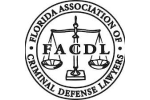to Save Yours
Substantial Assistance Under USSG 5K1.1
Tampa Lawyer for Substantial Assistance Under USSG 5K1.1
Substantial assistance is the process whereby a criminal defendant assists the government in prosecuting and investigating crimes perpetrated by people other than him or her. If you are accused of a crime, particularly a drug crime, a federal law enforcement officer may ask you to provide substantial assistance. Someone providing substantial assistance while a threat of arrest or prosecution is pending is known as a cooperating defendant, but not necessarily classified as a confidential informant. It can be extremely challenging to provide assistance to the government and gain the benefits available for doing so. It is crucial to hire a seasoned Tampa criminal defense attorney with experience navigating the federal criminal justice system to represent you when you’ve been asked to provide substantial assistance in Florida. You should consult Jason Mayberry. As an attorney with experience representing clients in the federal criminal justice system, he understands how to protect your interests in the course of this tricky process. Every accused person in our criminal justice system deserves zealous representation.
Providing Substantial Assistance Under USSG 5K1.1 to the Government in Tampa
Federal sentencing guideline 5K1.1 addresses defendant cooperation while the cooperating defendant’s case is pending. Depending upon the quality and value of the cooperation, the government can make a motion under USSG section 5K1.1 specifying you rendered substantial assistance in its investigation or prosecution of another person who perpetrated a crime. The 5K1.1 section specifies that if a defendant has provided substantial assistance to the government in investigating or prosecuting someone else who has committed a crime and the government makes a motion that cites 18 U.S.C. 3553(e), the court is empowered to issue a sentence below the applicable mandatory minimum sentence. This motion must be brought prior to sentencing.
It’s important to understand the government doesn’t owe a duty to file a motion because you helped. Rather, the government has discretion over whether to file a motion for a downward departure. However, an experienced lawyer can negotiate with the government on your behalf in the hope of increasing the chance that when you offer help, a suitable motion for a downward departure is made.
When the government makes a motion, the court is permitted to depart from the federal sentencing guidelines, which are harsh. The court can determine an appropriate reduction based on reasons set forth in the motion. This could include consideration of the following:
- The significance and utility of your assistance.
- The truthfulness, reliability, completeness of any testimony or information you gave.
- The nature and extent of your assistance.
- Any injury sustained or risk of injury to you or your family arising from your assistance.
- The timeliness with which you rendered assistance.
In most cases a sentencing court won’t be able to depart from a mandatory minimum sentence without a Section 5K1.1 motion. The starting point for the court’s departure is a mandatory minimum sentence, not a sentencing guideline. Accordingly, if a mandatory minimum sentence of 15 years applies to your case, and the calculation under the Sentencing Guidelines is shorter, the starting point of the departure is the mandatory minimum of 15 years, not the Sentencing Guidelines calculation.
When deciding whether to grant you a downward departure and evaluating how much of a departure should be made, the court is only required to consider your assistance. After the government makes a Section 5K1.1 motion, the government won’t control whether, and to what extent, the district court departs from the federal sentencing guidelines. The total sentencing reduction is fully within the discretion of the court and knowledgeable advocacy can make a difference. While there are factors §5K1.1 specifies should be considered in determining an appropriate reduction, it does not specify how these factors should be construed in relationship to the number of years by which your sentence would be reduced. That is one of the areas of concern in which a seasoned criminal defense attorney can make a huge difference to the outcome.
Providing Substantial Assistance in Tampa
You can provide substantial assistance to the government in a range of ways under the motion section. Here are two examples of substantial assistance:
- You could provide information to the government about someone who has been perpetrating crimes that results in arrest and prosecution of that person.
- You could provide information to the government to increase a potential sentence against another individual
- Substantial assistance can also mean you testify at a hearing or a trial against a co-conspirator. For example, if you and an experienced trafficker plotted to smuggle cocaine in from a different country, you could render substantial assistance.
Retain a Federal Criminal Defense Attorney
Jason Mayberry has the experience needed if you have been approached about providing assistance to the United States Attorney’s Office. He represents clients in any Federal criminal court, in addition to State courts located in Hillsborough, Pinellas, Pasco, Manatee, Sarasota, Hernando or Polk Counties. Call the Mayberry Law Firm at (813) 444-7435 or complete our online form.














